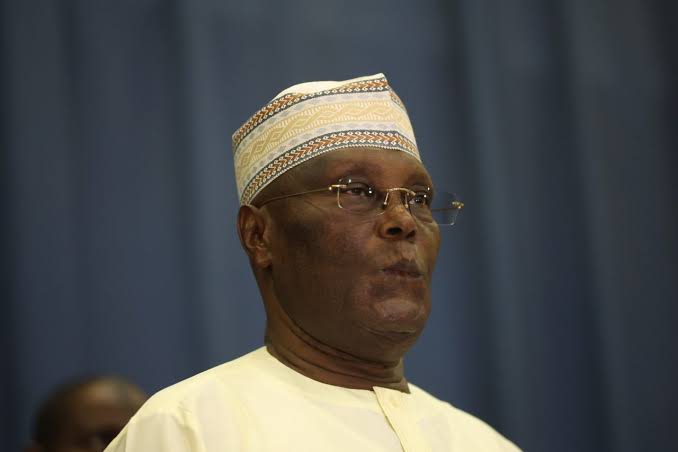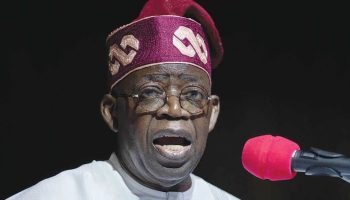In his closing address, Atiku asks the a tribunal to declare him president.
With victories in 21 states, the People’s Democratic Party’s Atiku Abubakar has petitioned the Presidential Election Petition Court to be declared the victor of the presidential election held on February 25.
This came as he claimed that the winner, Bola Tinubu, as announced by the Independent National Electoral Commission, was ineligible to run for office due to “an order of criminal forfeiture against him arising from a drug-related offence, his declaration of allegiance to a country other than Nigeria, his acquisition of citizenship of another country, and his presenting a forged certificate to the first respondent (INEC)”.
Atiku also stated that he had proven that the return of Tinubu in the election as the President of the Federal Republic of Nigeria was ‘invalidated by reason of substantial non-compliance with the mandatory provisions of the Electoral Act, 2022 on electronic transmission of results for collation and verification by deliberate bypass of and failure to transmit the election results electronically’.
In support of his joint petition with the PDP, which sought the annulment of INEC’s pronouncement of Tinubu as the election’s victor, he made the plea in his final address, which was submitted to the PEPC on July 20.
Atiku said that INEC’s claim that he won in 21 states had not been “disputed, retracted, debunked, or claimed to be an error through the proceedings of the tribunal so far” in a final statement that was signed by his lead attorney, Chief Chris Uche (SAN).
The PDP presidential candidate won 21 states of the federation in the presidential election on February 25, according to INEC’s response to Atiku’s petition.
Adamawa, Akwa Ibom, Bauchi, Bavelsa, Borno, Delta, Ekiti, Gombe, Jigawa, Kaduna, Katsina, Kebbi, Kogi, Kwara, Nasarawa, Niger, Osun, Sokoto, Taraba, Yobe, and Zamfara were among the 21 states declared by INEC as having been won by Atiku and the PDP.
Atiku argued that the panel should proceed to uphold the declaration because INEC, which asserted that he won the states on its own, did not refute the claim throughout the proceedings.
The final address read in part, “Notwithstanding, the first respondent (INEC) unequivocally and clearly admitted in its pleadings, namely paragraph 18 on page 13 of its reply to the petition, which was never refuted nor retracted that the petitioners won 21 states of the federation in the presidential election, which is an admission against interest.
“As a result of non-use of the collation by electronic transmission, the first respondent (INEC) later altered the admitted result of 21 states for the first petitioner to 12 states.
“As a result of non-use of the collation by electronic transmission, the first respondent (INEC) later altered the admitted result of 21 states for the first petitioner to 12 states.
“The petitioners have established that the return of the 2nd respondent as the winner of the presidential election held on 25th day of February 2023, was unlawful and unconstitutional, having not secured one-quarter of the valid votes cast in the FCT, Abuja as required by the Constitution of the Federal of Nigeria, 1999 (As Amended).
“The petitioners have proved that the second respondent was not duly elected by a majority of the lawful votes cast in the election. 41 (e). The respondents proffered very scanty evidence in defence and virtually abandoned their pleadings by not calling necessary witnesses, and not having any credible defence to the Petition. 6.02 We submit with all sense of responsibility that this Nation and its Judiciary stand at the threshold of history.”
The fact that a presidential election had never been declared invalid by the courts in Nigeria prior to this time, he continued, was not a good justification for not doing so now since, in his opinion, it is extremely right to do so.




